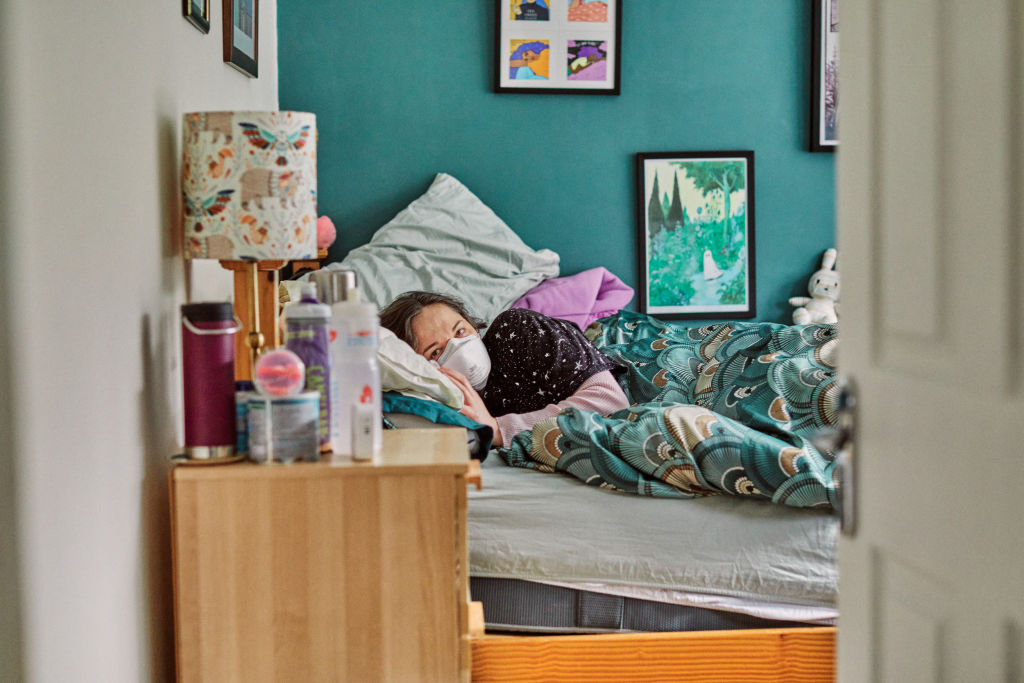The idea that long Covid presents a unique and significant threat to the enduring health of millions of people has become established as an article of faith among many in the public health establishment. So the suggestion this week by Queensland’s Chief Health Officer that we should abandon the term “long Covid” has set the cat among the pigeons.
Dr John Gerrard’s comments come on the back of research he and colleagues published in BMJ Public Health which found that 12 weeks after a diagnosis, patients with a Covid-19 infection were no more likely to have ongoing symptoms than those with other viral infections such as influenza. His point was not that no one experiences persistent post-Covid symptoms, but instead that “long Covid” is not a unique or new phenomenon and that “rates of ongoing symptoms and functional impairment are indistinguishable from other post-viral illnesses.”
In truth, Dr Gerrard’s findings should come as little surprise. Although ONS data tells us that significant numbers of people in the UK report symptoms long after a Covid infection, the most rigorous research comparing patients infected with Covid with a control group of uninfected patients tends to suggest a less worrying picture. For example, a meta-analysis of such studies focusing on children reported that the “frequency of the majority of reported persistent symptoms was similar in SARS-CoV-2 positive cases and controls”. In other words, it was hard to attribute most reported long-term symptoms as being caused by Covid at all.
Another study in the BMJ concluded that patients who originally experienced mild Covid symptoms were at longer-term risk for only “for a small number of health outcomes, most of which are resolved within a year”. This is not to play down the real experience of those who suffer symptoms long after Covid infection has gone and who rightly don’t want to be ignored, but overstating the problem can create unnecessary anxiety among the vast majority of the population who face very low risks from contracting Covid.
And here we come to a crucial point: the politicisation of “long Covid”. Far too often, fears over “long Covid” have been used to lobby in favour of controversial public health measures such as mask mandates, lockdowns, delays to opening schools or vaccine passports. Perhaps most scandalous has been the deployment of “long Covid” to try to increase coronavirus vaccination rates, even among groups for whom there has clearly been little or no benefit from being jabbed.
In spring of 2021 the fatal side effects of the AstraZeneca vaccine for some young people were sufficiently well-established that countries were banning its use. That didn’t prevent then Health Secretary Matt Hancock from warning young people of the serious consequences of “long Covid” that could “ruin your life” if they refused to get vaccinated and that all vaccines (including AstraZeneca) were “safe for all ages”.
The case for most if not all mandatory interventions aimed at tackling Covid-19 has been undermined by the increasing evidence that restrictions and mandates are simply not very effective. But we know that when it comes to Covid-19 policy, evidence is all too easily ignored. Just last July, healthcare workers in Scotland were using the risk of “long Covid” to argue for the reintroduction of compulsory masks in healthcare settings, despite the well-documented lack of evidence for the effectiveness of such measures.
The politicisation of post-Covid-19 symptoms is unhelpful both to medical professionals and the broader public. Ending the use of the term “long Covid” would be a positive step in reversing this trend.











Join the discussion
Join like minded readers that support our journalism by becoming a paid subscriber
To join the discussion in the comments, become a paid subscriber.
Join like minded readers that support our journalism, read unlimited articles and enjoy other subscriber-only benefits.
Subscribe